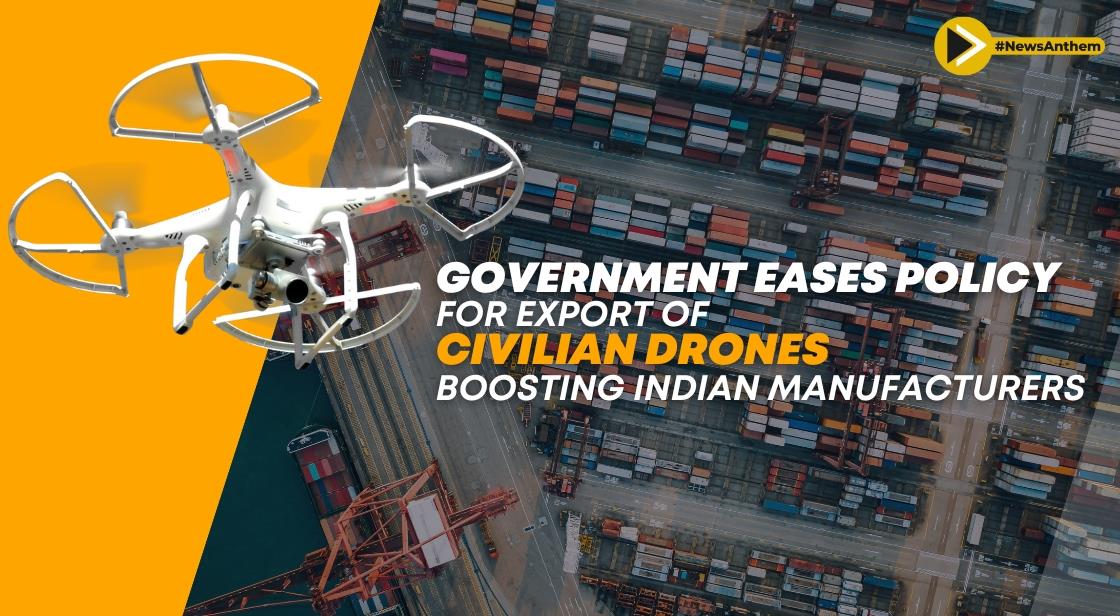Government Eases Policy for Export of Civilian Drones, Boosting Indian Manufacturers

News Synopsis
Policy Amendment Promotes Export of Civilian Drones
The Indian government has announced a significant policy amendment to facilitate the export of drones or unmanned aerial vehicles (UAVs) intended for civilian use. The Directorate General of Foreign Trade (DGFT) has simplified and liberalized the Special Chemicals Organisms Material Equipments and Technology (SCOMET) policy related to civilian drones.
This move aims to enable Indian drone manufacturers to access larger markets and compete globally.
Focus on Foreign Trade and Non-Proliferation Obligations
Aligning with India's Foreign Trade Policy 2023
The decision to ease the export policy for civilian drones aligns with India's foreign trade policy for 2023, which emphasizes the facilitation of high-tech exports. This includes promoting the export of drones manufactured in India for civilian purposes.
The policy change also takes into account India's international obligations on non-proliferation, ensuring compliance with global regulations.
Overcoming Export Restrictions for Civilian Drones
Amendment to SCOMET Policy
Previously, all types of drones were restricted for export under category 5B of the SCOMET list, which covers items with potential dual-use applications. This restriction required a SCOMET license for exporting such items. However, the industry faced challenges in exporting drones with limited capabilities designed solely for civilian use.
Considering the industry's concerns, the SCOMET policy for civilian drones has been amended to simplify and liberalize the export process. This change enables drone manufacturers to overcome export restrictions and access global markets more easily.
General Authorization for Export of Drones (GAED)
Streamlining Export Procedures
Under the amended policy, the export of drones that do not fall under specified categories in the SCOMET list and have a range of up to 25 km, delivering a payload of up to 25 kg (excluding software and technology), and intended solely for civilian use, will be subject to the 'General Authorization for Export of Drones' (GAED). This one-time general license will be valid for three years.
With the GAED authorization, drone manufacturers and exporters will no longer need to apply for a SCOMET license for each similar export shipment meant for civilian purposes within the three-year validity period.
This streamlines the export process and reduces compliance requirements, promoting ease of export for the drone industry.
Boosting Drone Manufacturers and Export from India
Empowering Indian Drone Manufacturers
The simplified export policy for civilian drones is expected to empower Indian drone manufacturers to export their products with ease. By removing the need for a SCOMET license for every export shipment, manufacturers can focus on scaling their operations and expanding their reach in global markets.
This policy amendment is a significant boost for the drone industry in India and encourages the export of high-quality drones manufactured in the country.
Conclusion
The Indian government's decision to simplify and liberalize the policy for exporting civilian drones demonstrates its commitment to promoting the growth of the Indian drone industry and facilitating global market access.
The policy change reduces compliance requirements for manufacturers and exporters, streamlining the export process and supporting the export of high-tech drones from India.
You May Like









